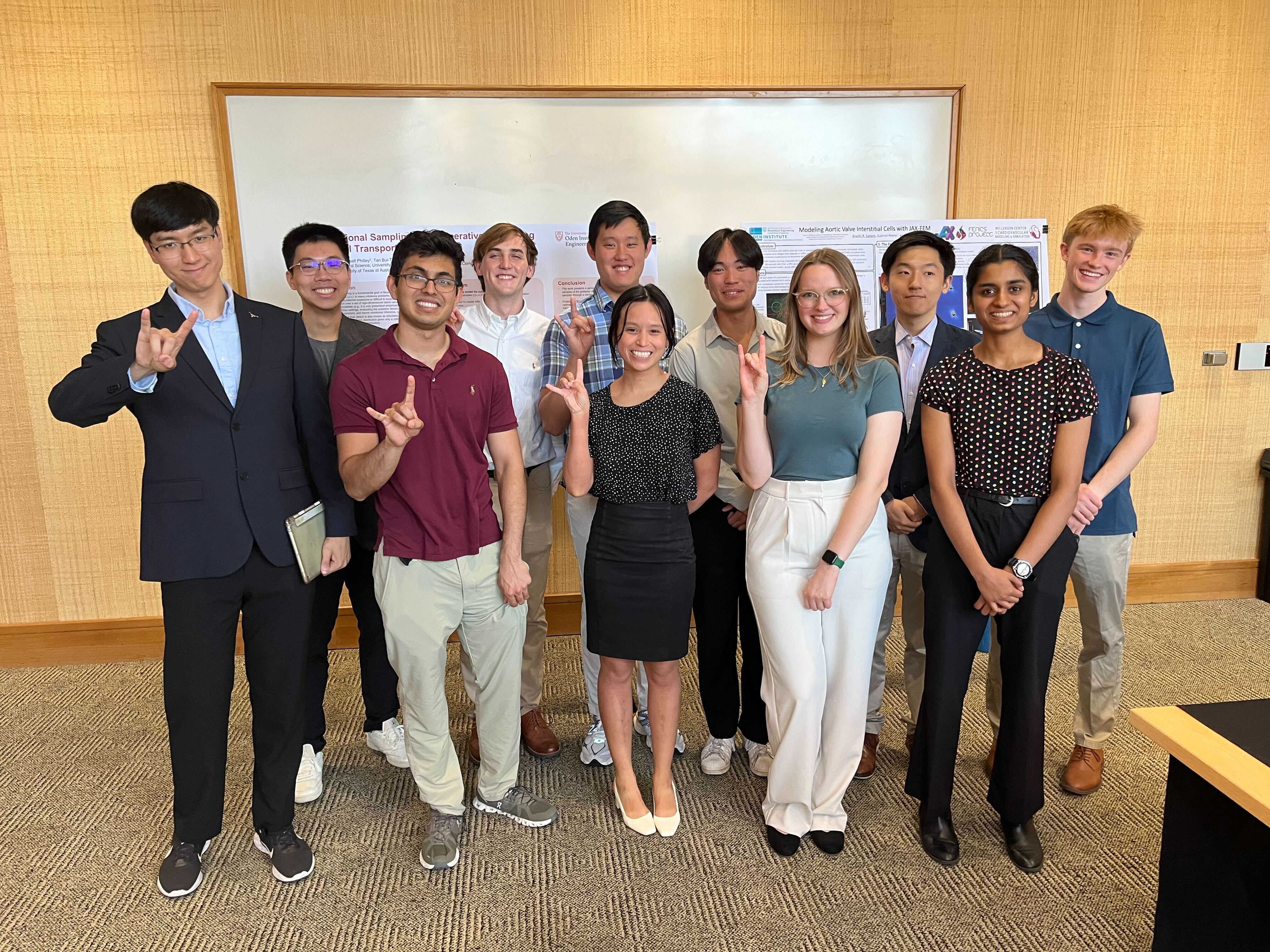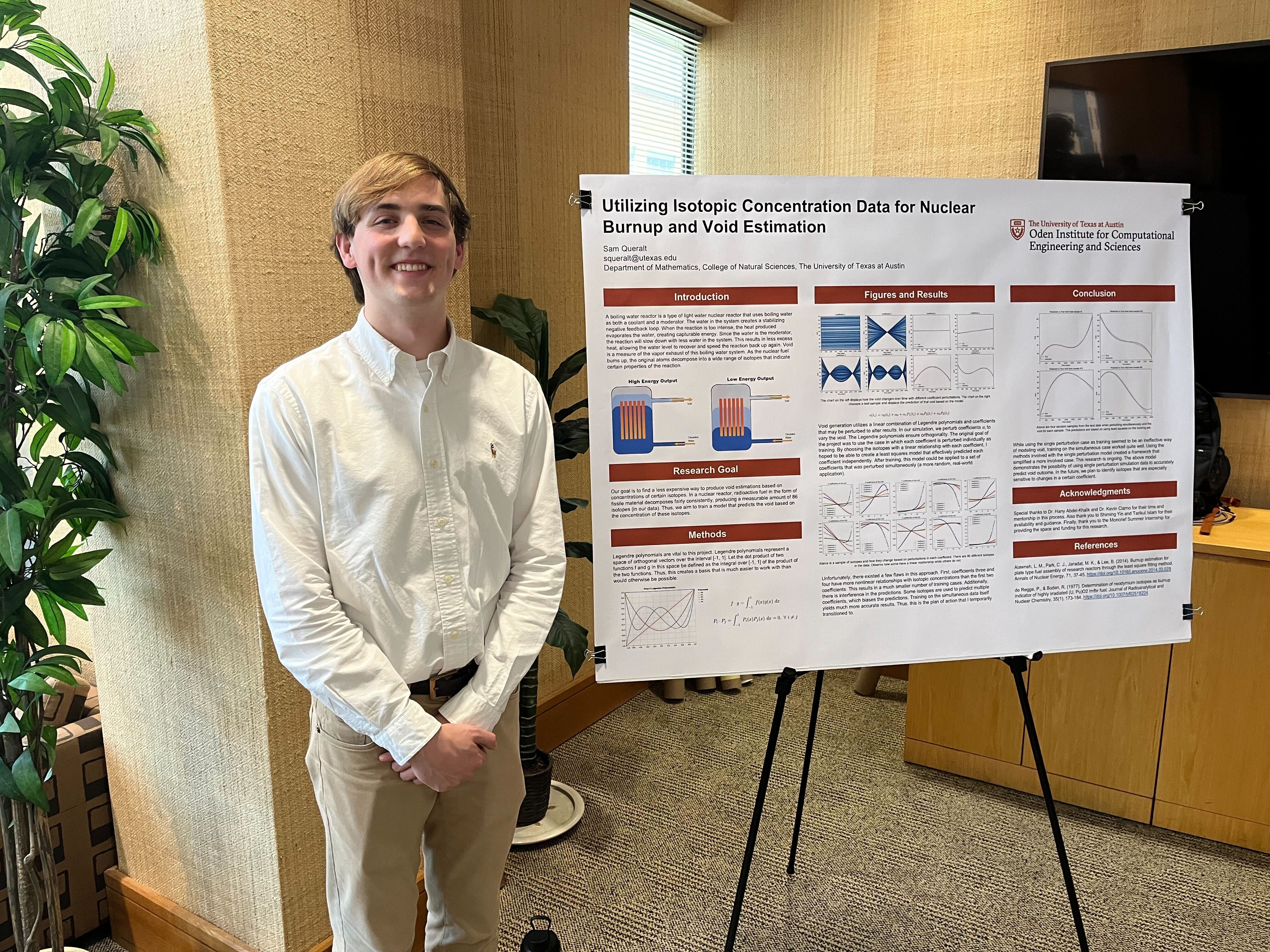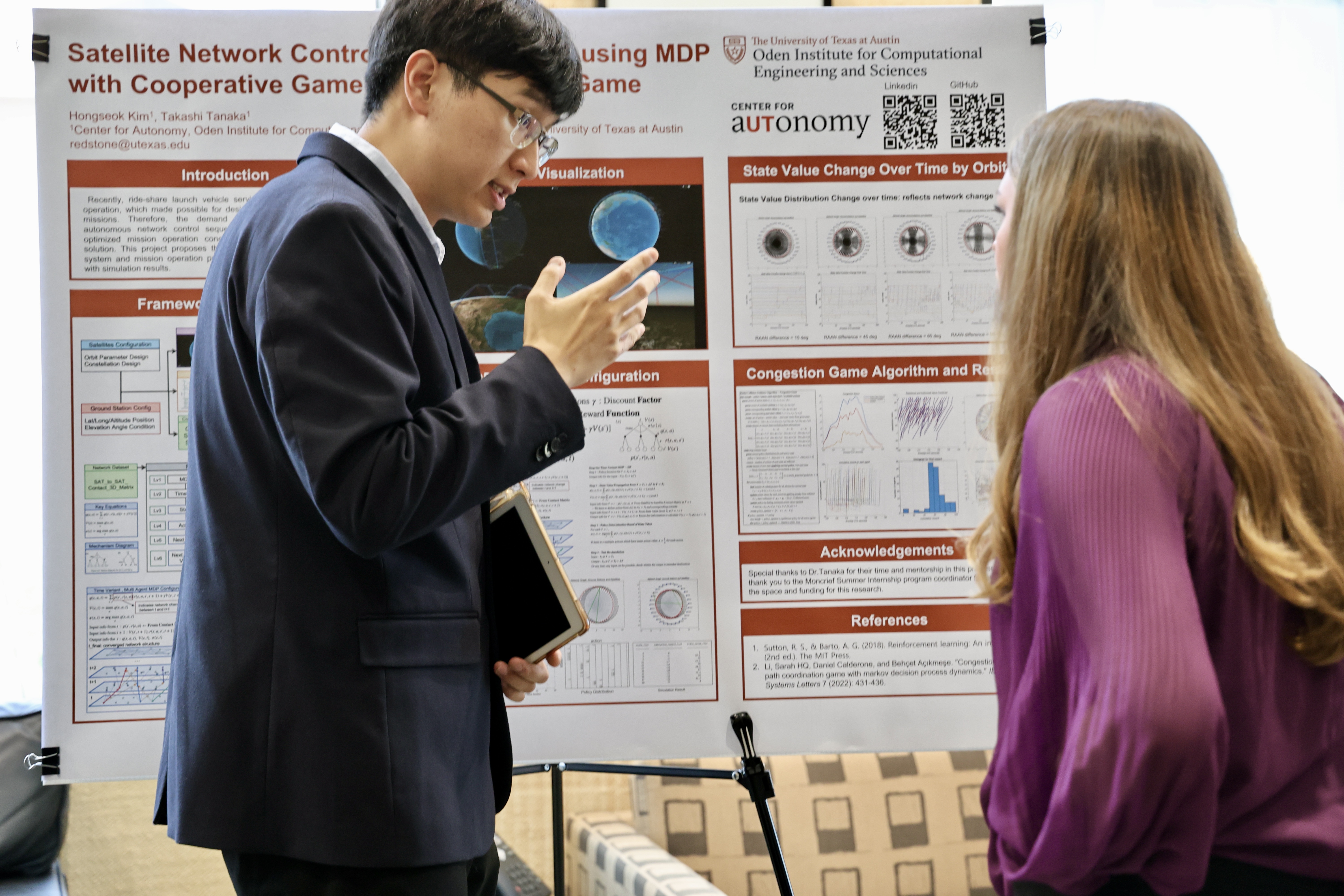This summer, the Moncrief Undergraduate Summer Internship Program at the Oden Institute for Computational Engineering and Sciences continued its tradition of empowering students to dive into research. The program offers undergraduates a unique opportunity to work on innovative projects across the various disciplines of computational science and engineering - from modeling nuclear reactors to predicting cancer response in mice.
The poster session on August 8 provided interns with an opportunity to communicate their research to both their faculty mentors and peers. Following the culmination of a summer of hard work, the session was followed by a reception to celebrate and reflect on the accomplishments of the Moncrief Interns of 2024.
Cade Dulaney, a student in the computational oncology track, made significant strides in optimizing cancer treatment protocols. "Currently, developing treatment protocols for patients is a slow and expensive process," Cade explained. "The field of computational oncology addresses this by creating mathematical models that can be 'tuned' to the individual patient." Cade's research involved developing a model to predict cancer response in mice, incorporating both radiotherapy and immunotherapy. By applying optimal control theory, Cade’s work resulted in eight treatment protocols that outperformed the standard protocols used during the experiment.
Sam Queralt focused on nuclear reactor modeling, using isotopic concentrations to reconstruct reactor operation history. His research, while highly specialized, showcased the program's breadth, extending from nuclear physics to practical applications in energy production.


